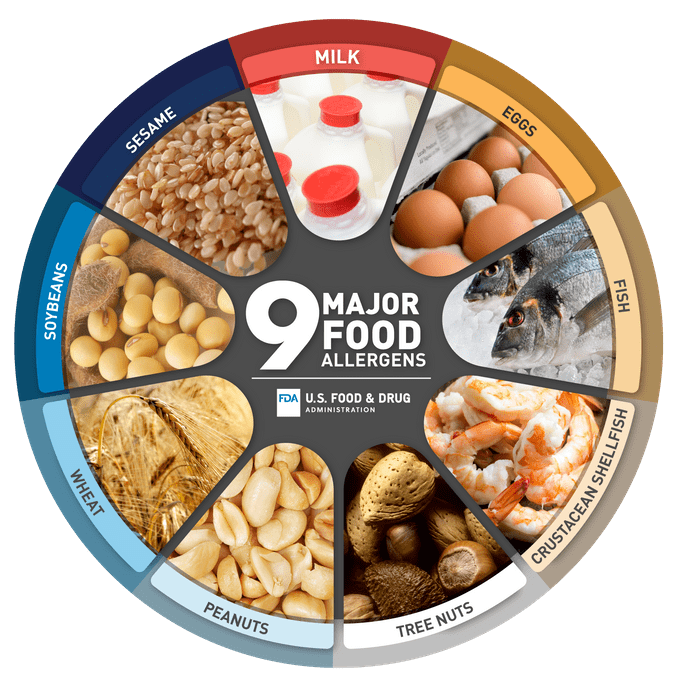Sesame Joins the FDA’s Major Food Allergens List—Here’s What to Know
Updated: Jan. 18, 2023

Sesame will now be regulated the same as shellfish, peanuts, tree nuts and other major food allergens.
While sesame seeds can be delicious and nutritious, they can also be a deadly food allergy for some. That’s why starting this month, the Food and Drug Administration designated sesame as a major food allergen. Sesame joins eight other major food allergens: milk, eggs, fish, shellfish, tree nuts, peanuts, wheat and soybeans.
Sesame joining the list of major food allergens was the result of the Food Allergy Safety, Treatment, Education, and Research (FASTER) Act, signed into law on April 23, 2021. You can find sesame in dozens of ingredients. Yet, until now, food producers did not have to list sesame as an ingredient on the label unless whole seeds were used. Now any sesame product, including sesame oil, must be noted on the label.
Jason Linde, senior vice president of government and community affairs at Food Allergy Research & Education, told CNN that the new law “is a huge victory for the food allergy community.” Linde explained to CNN, “For years, (people) with a life-threatening sesame allergy would have to look at the back of the label, call the manufacturer and try to figure it out.”
What Are the Symptoms of a Sesame Allergy?

Symptoms include difficulty breathing, itchiness inside the mouth, coughing, low pulse rate, nausea, vomiting, abdominal pain and hives.
According to the FDA, allergic reactions vary in severity from mild symptoms (hives, lip swelling) to severe, life-threatening symptoms often called anaphylaxis, which may involve fatal respiratory problems and shock.
How Common Is a Sesame Allergy?
Nearly 1.1 million people in the United States have a sesame allergy, or about .23% of the population, according to a 2019 study.
What Foods Should You Avoid If You Have a Sesame Allergy?
There are certain foods that people who are allergic to sesame should definitely avoid, such as:
- sesame oil
- sesame seeds
- tahini
Notably, those with a sesame allergy should also be cautious with these foods (among others) and double-check to make sure they are free from sesame before consuming them:
- baked goods
- breadcrumbs
- processed meats
- tempeh
- sushi
- sauces and dips like baba ghanoush
- falafel
- pita and bagel chips
- noodles
- energy bars
With the rise of plant-based diets, foods with sesame have become more popular and widespread. Sesame oil is often found in vegan, Middle Eastern and Japanese cooking, all of which have grown in popularity in recent decades.
A product like tahini, for instance—used in hummus recipes—previously did not need to be labeled as having sesame, even though it’s made from ground sesame paste. Many people did know the product contained sesame. The new law will make sure it is labeled as such.
















